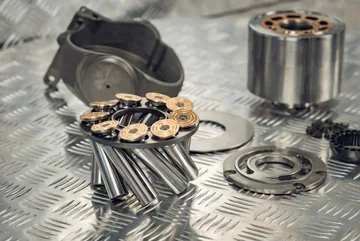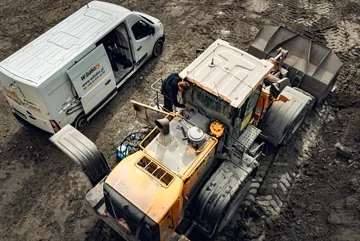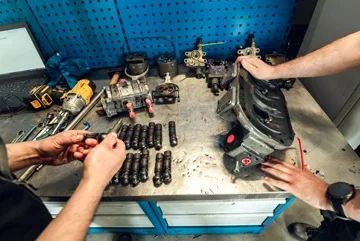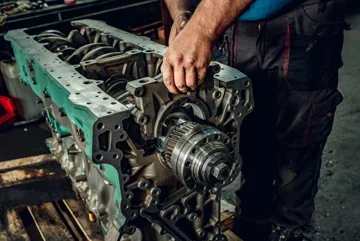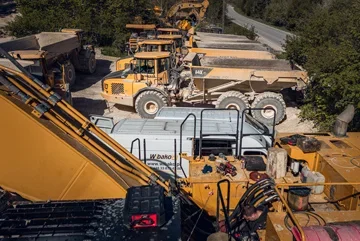Recognizing faults in the hydraulic system
The hydraulic system is the heart of every construction machine and if it is efficient, it provides optimal working conditions. However, sometimes a minor failure is enough for an excavator or loader to have to go to the service.
The situation can be worse if we ignore worrying symptoms, because then we face much higher costs. In this article, we suggest how to recognize if something is wrong with our hydraulic system.

Unexpected failures rarely occur
The hydraulic system of each machine consists of: a pump or pumps, a drive motor or motors and of course a rotation motor, which we find in excavators.
Additionally, there are pumps and system engines for the control and cooling systems and the additional equipment system, and each of these elements, even before it fails, gives clear signals that something is wrong with it.
If we are lucky, although it is hard to define it that way, the operator will react to worrying signals early enough, and then we have a great chance of avoiding costly repairs.

Such symptoms include:
- so-called "strangling" of the engine under greater load,
- slowed down machine functions,
- weakening of the machine as the temperature of the hydraulic oil increases,
- some functions run slower than the rest, e.g. weaker driving,
- driving is only in one direction or rotation in one direction,
- lack of reaction of the machine to the control signal from the joysticks,
- the machine has power, but is slow at work,
- it cannot cope with a large load,
- it drives only at slow speed,
- presence of larger amount of hydraulic oil in the reduction gear, gearbox, combustion engine or a large oil leak from the pump or hydraulic engine next to the shaft.
In case of such symptoms, it is necessary to call a specialist who will examine individual elements of the hydraulic system and assess what kind of failure they have suffered, and the service will perform a pressure measurement, flow and look for possible leaks.
Of course, it happens that problems with the hydraulic system are simply the result of normal wear and tear of the pump or engine. After the inspection and repair, it is also necessary to check the cleanliness of the oil and filters.

Severe failure gives clear symptoms
Unfortunately, very often the symptoms of damage to the hydraulic system clearly indicate that the machine owner faces large expenses, on the list of these ominous symptoms are:
- sudden stop or "choking" of the combustion engine
- very loud noise in the pump or hydraulic engine
- very fast and large pressure jumps
- large vibrations of hoses and rattle coming from the engine or hydraulic pump
- cracked housing and leak from the pump or hydraulic engine
- clutch breakage or pump drive shaft
In case of occurrence of any of these symptoms, the operator is obliged to immediately stop work, and the machine must go to a specialized service, which has a lot of experience in repairing hydraulic elements, because the quality of these works determines whether the machine will return to its former efficiency.













